Filter by
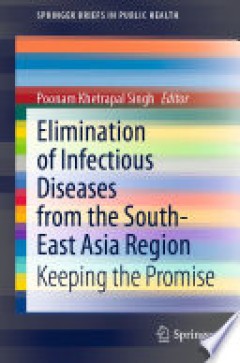
Elimination of Infectious diseases from the south-east asia region : keeping …
This book discusses the historical context, country experience, and best practices that led to eliminating infectious diseases from the WHO’s South-East Asia Region, such as malaria, lymphatic filariasis, yaws, trachoma, and mother-to-child HIV in the mid-twentieth and twenty-first century. The UN Sustainable Development Goals (3.3) targets to end AIDS, tuberculosis, malaria, and neglected t…
- Edition
- -
- ISBN/ISSN
- 9789811655661
- Collation
- XV, 126 p
- Series Title
- -
- Call Number
- 616.90959 POO e
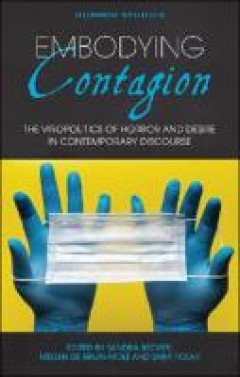
Embodying contagion: the Viropolitics of horror and desire in contemporary di…
From Outbreak to The Walking Dead, apocalyptic narratives of infection, contagion and global pandemic are an inescapable part of twenty-first-century popular culture. Yet these fears and fantasies are too virulent to be simply quarantined within fictional texts. The vocabulary and metaphors of outbreak narratives have permeated how news media, policymakers and the general public view the real w…
- Edition
- -
- ISBN/ISSN
- 9781786836915
- Collation
- xviii, 303p.
- Series Title
- Horror Studies
- Call Number
- 809.933561 EMB e
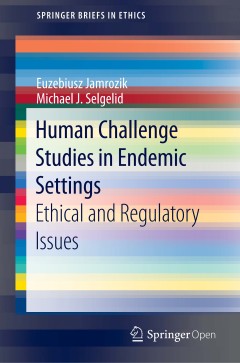
Human challenge studies in endemic settings : ethical and regulatory issues
This open access book provides an extensive review of ethical and regulatory issues related to human infection challenge studies, with a particular focus on the expansion of this type of research into endemic settings and/or low- and middle-income countries (LMICs). Human challenge studies (HCS) involve the intentional infection of research participants, and this type of research is rapidly inc…
- Edition
- -
- ISBN/ISSN
- 9783030414801
- Collation
- xvii, 134p. : ill.
- Series Title
- -
- Call Number
- 614.4 JAM h
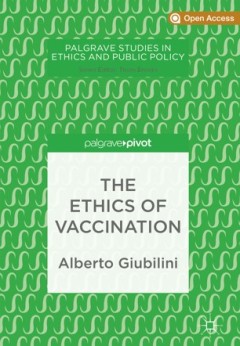
The ethics of vaccination
This open access book discusses individual, collective, and institutional responsibilities with regard to vaccination from the perspective of philosophy and public health ethics. It addresses the issue of what it means for a collective to be morally responsible for the realisation of herd immunity and what the implications of collective responsibility are for individual and institutional respon…
- Edition
- -
- ISBN/ISSN
- 9783030020682
- Collation
- xv, 126p. : ill.
- Series Title
- -
- Call Number
- 174.295372 GIU e
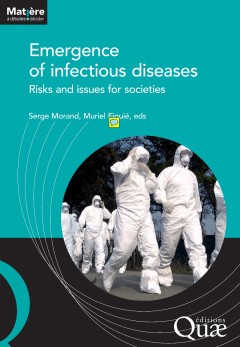
Emergence of infectious diseases : risks and issues for societies
From SARS to avian influenza, Ebola virus and MERS-CoV, infectious diseases have received increasing attention in recent decades from scientists, risk managers, the media and the general public. What explains the constant emergence of infectious diseases? What are the related challenges? In five chapters, experts from different scientific fields analyse the ecological, social, institutional and…
- Edition
- -
- ISBN/ISSN
- 9782759227730
- Collation
- 127p. : ill.
- Series Title
- -
- Call Number
- 616.905 EME e
 Computer Science, Information & General Works
Computer Science, Information & General Works  Philosophy & Psychology
Philosophy & Psychology  Religion
Religion  Social Sciences
Social Sciences  Language
Language  Pure Science
Pure Science  Applied Sciences
Applied Sciences  Art & Recreation
Art & Recreation  Literature
Literature  History & Geography
History & Geography